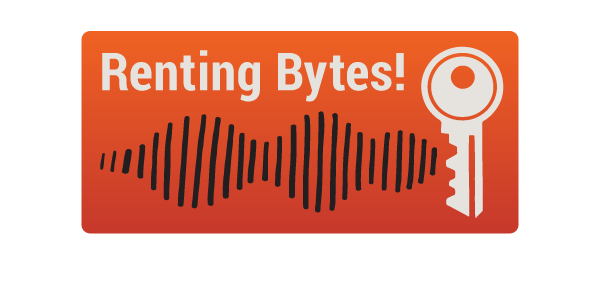What could the NSW Religious Freedoms Bill mean for renters?
Riley Brooke • 19/10/2020
The Tenants' Union takes discrimination seriously: that's why we don't support this Bill
The Tenants' Union takes seriously the problem of discrimination, in particular in relation to housing. We believe everyone should have the right to safe, secure housing, free from discrimination, including on the basis of religion. However, we hold deep concerns about the Anti-Discrimination Amendment (Religious Freedoms and Equality) Bill 2020, and do not believe this Bill will serve to reduce discrimination against renters. Instead, the Bill would allow people and organisations to use religion to engage in otherwise unlawful, discriminatory behaviour, including when providing housing. This would harm a broad range of people who already experience discrimination, including many people from minority faiths, the LGBTQI+ community, and single parents.
Discrimination in rental housing
In the private rental market, the process for applying for housing is competitive. The decision to accept or reject an application lies solely with the landlord, or in many cases a real estate agent advising the landlord. This puts many tenants at a disadvantage, particularly those on low incomes or who otherwise experience discrimination in broader society.
Discrimination in the provision of rental housing in NSW is subject to state and federal anti-discrimination legislation. Under each of these laws, discrimination on grounds of race, sex and a number of other factors is illegal, although there are exemptions for situations where the landlord or housing provider or their family member(s) live with the renter that they are discriminating against. Those who experience unlawful discrimination can make a complaint to the NSW Anti-Discrimination Board or the Australian Human Rights Commission. In most cases, however, the onus for proving discrimination falls to the person being discriminated against. This makes the process of seeking justice following discrimination very difficult.
Despite existing protections in state and federal law, many renters report having experienced discrimination, both lawful and unlawful, during the rental application process. A national survey of renters undertaken in 2017 by Choice, National Shelter and NATO found widespread discrimination in the private rental market. One in two renters reported experiencing discrimination when applying for a rental property in the previous five years, including discrimination on the basis of being a single parent, gender, and sexuality. Previous research has pointed to particular risk of discrimination for households with children, and in particular single-parent households. The Australian Productivity Commission has highlighted how discrimination limits options for renters, and can increase significantly the risk of vulnerable renters being pushed into homelessness.
Clearly, discrimination is a big problem in relation to rental housing. There is absolutely a need to strengthen protections from discrimination in NSW. However, the Anti-Discrimination Amendment (Religious Freedoms and Equality) Bill 2020 will not solve this problem, and could in fact make it worse.
Context: the Anti-Discrimination Amendment (Religious Freedoms and Equality) Bill 2020
In May the Anti-Discrimination Amendment (Religious Freedoms and Equality) Bill 2020 was introduced into NSW Parliament by One Nation NSW's Mark Latham. The Bill seeks to add a new Part 2B to the Anti-Discrimination Act 1997 relating to discrimination on the basis of religion. The Bill is currently being considered by a NSW Parliamentary Joint Select Committee.
Last week, the Tenants’ Union signed on to a joint statement coordinated by Equality Australia opposing the Bill, on the basis that it would allow people and organisations to use religion as an excuse to hurt, exclude and demean people – including renters. The amendment potentially allows exemptions for people and organisations on the basis of religion, that would allow otherwise unlawful, discriminatory behaviour including unlawful discrimination when providing accommodation or housing.
The Bill defines and privileges 'religious ethos organisations'
Proposed section 22K would introduce into the Act a definition for ‘religious ethos organisations’, and give these organisations the ability to discriminate against individuals and other organisations on the basis of religious belief. In that context the definition for ‘religious ethos organisation’ is worryingly broad:
(a) a private educational authority that is conducted in accordance with the doctrines, tenets, beliefs or teachings of a particular religion, or
(b) a charity registered with the Australian Charities and Not-for-profits Commission under the Australian Charities and Not-for-profits Commission Act 2012 of the Commonwealth that is conducted in accordance with the doctrines, tenets, beliefs or teachings of a particular religion, or
(c) any other body that is conducted in accordance with the doctrines, tenets, beliefs or teachings of a particular religion.
This is out of step with the definition of ‘religious organisations’ that currently exists in the Act, and with similar definitions in other jurisdictions.
The proposed section 22M would then introduce a carve-out for all religious ethos organisations, stating that such an organisation is taken not to discriminate on the grounds of religious belief or religious activity if its conduct:
(a) is consistent with the doctrines, tenets, beliefs or teachings of the religion of the organisation, or
(b) is required because of the religious susceptibilities of the adherents of the religion of the organisation, or
(c) furthers or aids the organisation in acting in accordance with the doctrines, tenets, beliefs or teachings of the religion of the organisation.
It is unclear how far this exception goes or what all of its implications would be. The Act already has sections stating that it is unlawful for a person to discriminate on grounds of race, sex, transgender identity, marital or domestic status, disability, homosexuality or age, in relation to provision of accommodation. The Act does already, however, provide a number of exemptions. Under the Act it is not unlawful to discriminate on these bases if the person would be sharing the accommodation with the owner or their close relative, and there are no more than 6 people living in the premises. It also may not be unlawful to discriminate if the accommodation is designed to meet the needs of particular groups (e.g. women, older persons, youth).
While the 'Religious Freedom' Bill states that the exception above in the proposed section 22M technically only applies to this one Part of the Act relating to discrimination on the basis of religion, (so does not explicitly grant exemptions from other Parts such as those that ban discrimination on the basis of race, sex, sexuality and more) it remains unclear what this exception could allow in practice.
For instance, we are concerned that a housing provider that met the definition of 'religious ethos organisation' could make use of the exception to give preference to renters who are, or claim to be, adherents of the specific religion. This has the potential to lead to exclusion for people of minority religions, and by extension many racial minority communities due to the significant overlap between these attributes. Similarly, LGBTQI+ people seeking to rent or access housing from a 'religious ethos organisation' may feel pressure to remain closeted if they believe this will help their chances of acceptance. In effect, this exception could create loopholes and provide a broad range of organisations, including those that provide temporary accommodation, as well as longer term rental housing, with cover to discriminate on the basis of race, sexuality, marital status or many of the other attributes currently protected by the Anti-Discrimination Act. The loophole potentially includes from government contracts and policies that direct or guide housing allocation from the social housing waiting list that, and currently explicitly prevent discrimination.
Many providers of housing, including a number of community housing providers (CHPs) and homelessness services (as well as broad range of other social and community services and for-profit businesses) could potentially fall under this definition. We are not suggesting here that any existing community housing providers or other accommodation providers or specialist homelessness services would be interested in making use of this exception to discriminate on the basis of religion. However, we are deeply concerned with any moves being made in Parliament that could make such discrimination, and the harm that would result, possible. This is especially worrying as social housing (both public and community housing) and homelessness support services have often served as a crucial safety net and buffer for those who struggle to find and sustain housing in the private rental market, at least in part because of the unlawful discrimination experienced there.
The Bill defines and privileges 'religious activities'
Along with introducing a very broad definition for ‘religious ethos organisation’, proposed section 22K also introduces a very broad and vague definition for ‘religious activity’:
[E]ngaging in religious activity, including an activity motivated by a religious belief, but does not include any activity that would constitute an offence punishable by imprisonment under the law of New South Wales or the Commonwealth.
The Bill then makes it unlawful to discriminate against a person on the basis of their religious activities. The Explanatory Note for the Bill expands on this to provide some examples of what a religious activity might involve, which include:
c) teaching, writing, issuing and disseminating relevant publications, to establish and maintain communications with individuals and communities in matters of religion or belief at the national and international levels; and
(d) seeking, receiving and imparting religious beliefs either orally, in writing or in print, in the form of art or through any other media; and
(e) any activity or manifestation motivated by a religious belief, whether in public or in private, and whether individually or in community with others
This means that a significant number of activities would be defined as religious activities, up to and including activities that are unlawful, so long as they do not constitute offences punishable by imprisonment. Examples of activities that are unlawful, but are not punishable by imprisonment include harassment, neglect, bullying and breaches of contract, consumer and corporations’ laws. This Bill would protect those activities so long as they are religiously motivated. In doing so, this Bill would effectively flip the location of the protection, by making it such that a person or institution engaging in a particular religious activity is taken to be discriminated against if they are stopped from or held accountable for engaging in that activity, even when that activity itself is discriminatory, harmful, or even unlawful.
For instance, a building manager or other staff at a rental apartment complex could lawfully disseminate material in line with their religious beliefs (such as relating to women’s rights, LGBTQI+ people, people from minority religious or racial backgrounds, and more) to tenants through newsletters, leaflets, posters and more. This material could be discriminatory, harmful, or even unlawful, however if challenged, the individual or organisation challenging the distributor (here: a staff member) would be the one potentially punished for discrimination.
The Bill is vague and poorly written
Aside from the potential for harm this Bill could cause to minority groups, the Bill is also particularly vague and poorly written. Because of this, it would introduce self-contradiction in the Act, and a lack of clarity on how different parts of the Act interact and where contradiction exists, which part prevails. As with many complex legal situations, those people least able to afford legal representation will be disadvantaged by this complexity.
If not this Bill, then what? Strengthening existing protections, not introducing loopholes
Despite anti-discrimination protections in place at both state and commonwealth level, in practice many renters experience discrimination in rental housing, especially in the private rental market. The protections in place are limited, and those who experience unlawful discrimination often find it difficult to provide the evidence required to substantiate unlawful discrimination, and often have very little recourse or remedy through the currently available regimes.
There is clearly a problem with the way in which discrimination in the rental market is regulated. We recognise the need to strengthen protections from discrimination, however the Anti-Discrimination Amendment (Religious Freedoms and Equality) Bill 2020 is not the way this should be done.
We see some alternative, much more fitting, ways to strengthen protections from discrimination. NSW tenancy law must be reformed so as to introduce regulation of the application process for private rental housing. Regulation could improve protections for renters from discriminatory and/or intrusive requests for information, as well as increase the transparency of the decision-making process for applicants. This would mean landlords and agents would have far less opportunity to discriminate against renters and get away with it. More broadly, we also support the calls from many of our colleagues in the community legal sector for a comprehensive review of the Anti-Discrimination Act 1977, to modernise the Act, and to consider the inclusion of additional protected attributes, such as religious belief and religious activity.
More information & get involved
To find out more about the Anti-Discrimination Amendment (Religious Freedoms and Equality) Bill 2020, click here. If your organisation would like to join the 91 (and counting!) organisations that have signed on to the statement opposing the Bill, click here. If you as an individual would like to sign the petition against the Bill, click here.
Please share far and wide among your networks!




